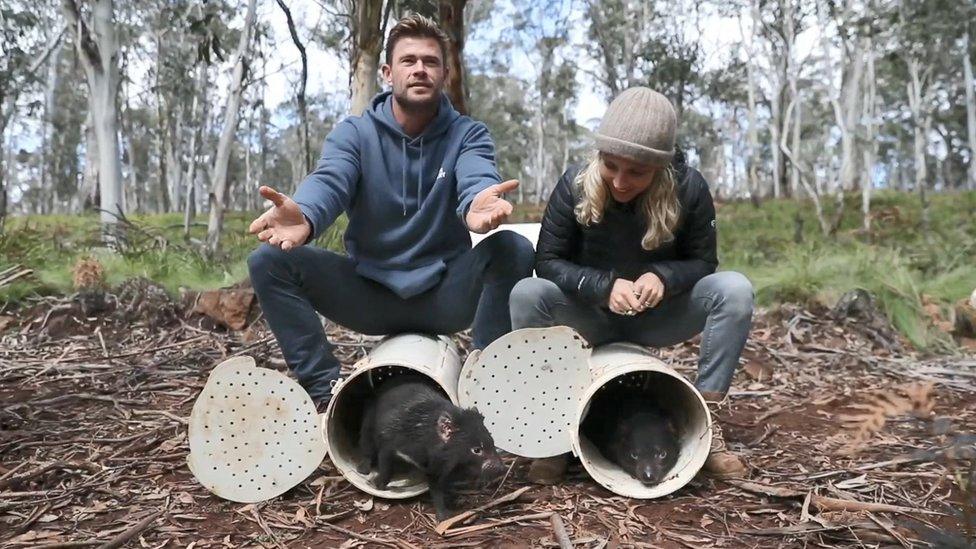Tasmanian devils released into the wild
- Published
- comments

Actor Chris Hemsworth, who plays Thor in the Avengers films, and his wife Elsa Pataky released two of the Tasmanian devils
The release of a group of Tasmanian devils into the wild in mainland Australia has been described as "historic".
Australian actor Chris Hemsworth (who plays Thor in the Avengers films) and his wife Elsa Pataky joined conservation group Aussie Ark to help release the 11 animals.
Tasmanian devils are marsupial predators which were pushed into extinction in the country 3000 years ago by poachers and other predators like dingoes, which hunt in packs.
These Tasmanian devils are from a breeding programme in Tasmania, and have been released into a special 1000-acre wildlife sanctuary in Barrington Tops, just north of Sydney.
Tim Faulkner, president of Aussie Ark, said this was an "historic" and "incredible" moment.
The conservationists will keep an eye on how they're settling in by using camera traps, radio collars and surveys.
A total of 26 Tasmanian devils have now been released into the wild in Australia, and the charity plans to release 20 more next year.
"In 100 years, we are going to be looking back at this day as the day that set in motion the ecological restoration of an entire country," Tim added
As predators, Tasmanian devils can help Australia's native small mammals to recover, by deterring feral cats and foxes, as well as encouraging forest re-growth by foraging.
They're known for their fearsome growl and powerful jaws, and were even turned into a cartoon character called Taz in the series Looney Tunes.
According to government environmental authorities, they aren't dangerous to humans or livestock but will defend themselves if attacked.
What has been affecting their numbers?
An unusual disease has been badly affecting the Tasmanian devil populations
On the island of Tasmania, the devils have been thriving for many years, as there are no dingoes there to compete with.
However, a contagious and fatal disease called Devil Facial Tumour Disease (DFTD) - a type of cancer - has destroyed around 80-90% of the wild population in recent years.
There are thought to be around 25,000 Tasmanian devils still left in the wild, down from as many as 150,000 before DFTD first struck in the mid-1990s.
The Tasmanian devils released into Australia have been cleared of the disease, before being released.
- Published31 July 2020
- Published6 September 2020
